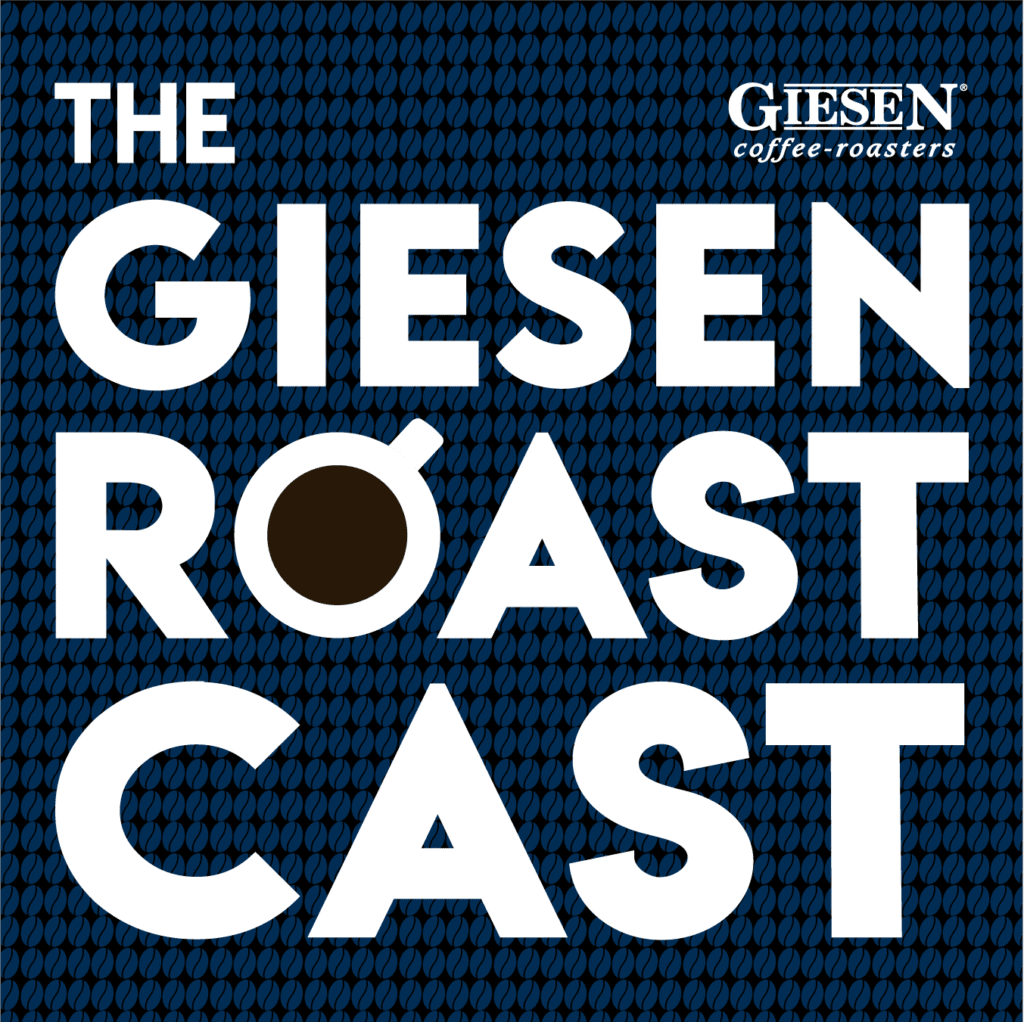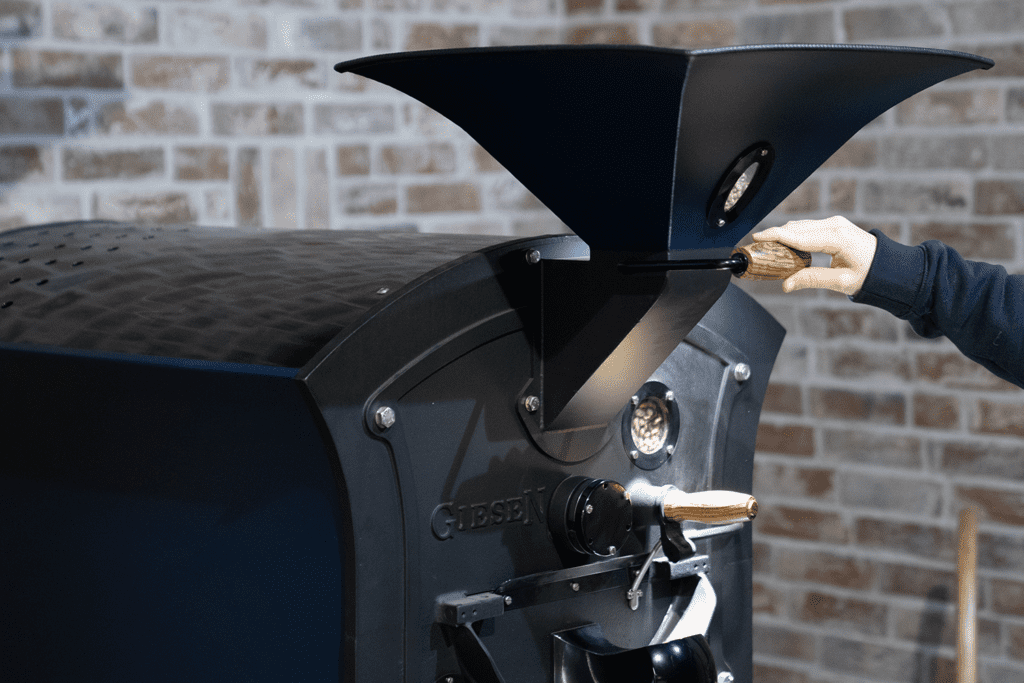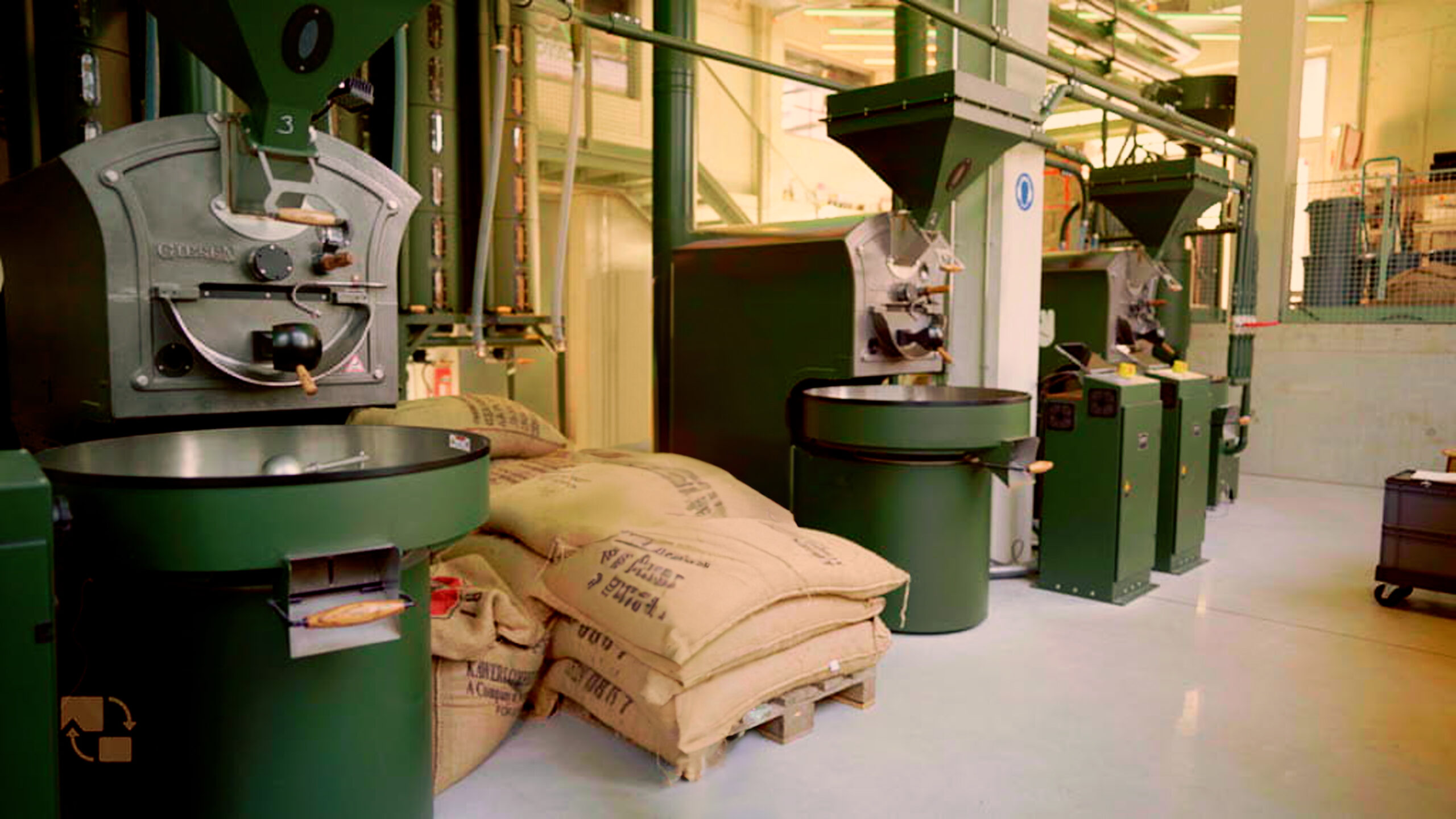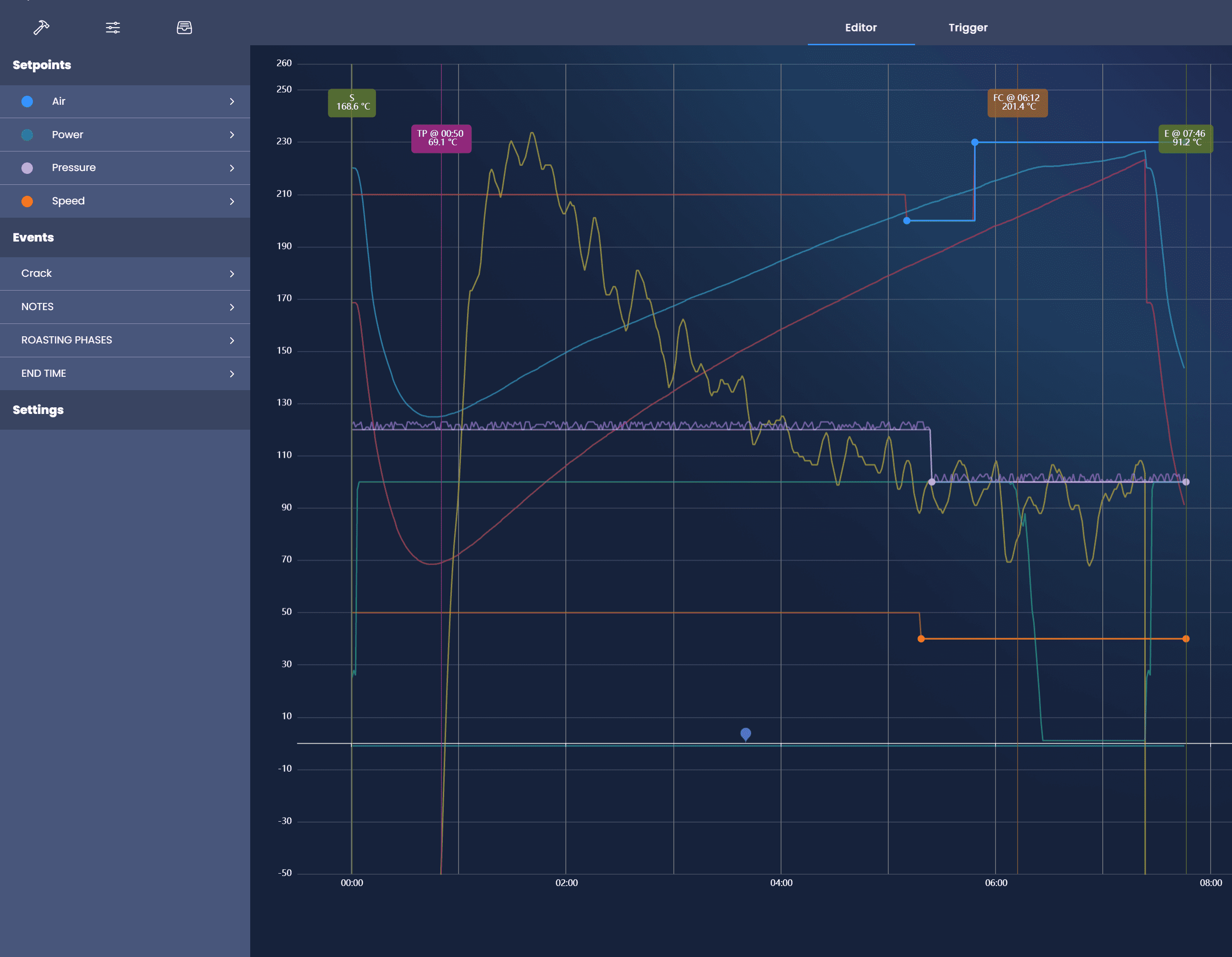The first season of the Giesen podcast is a fact! And if you ask us, the season was more than successful! We had the opportunity to talk with many successful and inspiring people who all shared great experiences and tips with us. In this retrospective, we share the 9 most striking and inspiring words from all nine guests. Let’s look back together!
1. Tom Osborne – When is it time to scale up?
Tom: ‘Let me go back to a point where I had a conversation when I was looking to hire my roaster. I talked with a really good business friend of mine. He runs a successful espresso machine part company. And he advised me that if you can afford someone for six months, you should take them on. Because there is this weird thing when you hire someone, they will be busy because you need to make them busy to make it work. So, I knew when I had my W6, that I couldn’t spend my life behind the roaster. I knew that we needed to climb up to the W15 which was our second roaster because I needed to roast less. I needed to roast only for 2 days a week, so I could spend the other 3 days packing the coffee, talking to customers, and so on. I needed to build the business.
Definitely, with higher risks, comes higher opportunity. The more tolerance you have, the more patient with customers, the higher the reward. So, when it comes to growing and scaling, sometimes you got to go for it. Go out of your comfort zone.’
Episode: When is it time to scale up?
2. Sonja Björk Grant – It’s a Man’s world?
Cisca: ‘What advice would you give to female roasters who have the dream to start their own business?’
Sonja: ‘Number one is to do it. Besides that, I think it’s important to specialize in something and find a side business. You don’t just want to roast all day. That would be deadly boring. For example, a café, museum, or seminar. Otherwise, you die out of boredom.’
Episode: It’s a man’s world?
3. Willem Boot – Journey and mission
Willem: ‘The quality of coffee in the widest sense is not only about the flavor of the coffee. It is everything that surrounds the production, including the livelihoods of the farmers and the impact we have on the environment. The impact also involves how we deal with our own employees or how our actions impact others. So quality is a very wide concept. I think, as entrepreneurs, we have an opportunity to help farmers. I do like programs like Fairtrade to help farmers but in the end, I think the most sustainable way to guarantee that farmers get more income in long term, is improving the quality.’
Episode: Journey and mission
4. Hugh Kelly – Triple winner of the Barista Championships
Hugh: ‘ You can have amazing coffee one day but you also need to know how to control it and how to fix it. A part of it is building a vocabulary. So, if you are a barista and you taste sour acidity or low sweetness, you know you are going to adjust this and fix it. So you have this vocabulary. Although you don’t have the vocabulary until you have made all the mistakes and gained experience. Everyone can produce an amazing coffee one day out of 50 but producing amazing coffee every day consistently, that’s super hard. You need to see stuff and record. It takes a long time, but it’s super exciting when you have it all clicked in and know exactly what you are doing.’
Episode: Triple winner of the Barista Championships

5. Filip Åkerblom – Co-creator of the World Coffee Roasting Championship
Filip: ‘Older generations learned by doing. They worked side by side with the master. But they never learned the theoretical part of the profession. They only learned the practical part. So my point of view is that you need to educate yourself with theoretical knowledge so you know what you do in the practical part. To be able to produce something good and improve your skills. That’s why I created an education program for roasters. And after that, the World Championship in coffee roasting. So that people can become better at roasting by competing.
It’s like driving a car. To be able to become a good driver, you need a lot of experience. So, there is no easy way to become a good roaster. You can read a lot of theoretical information. But it doesn’t necessarily mean that you are a good roaster. Because the more you roast, the better you become, just like a driver.’
Episode: Co-creator of the World Coffee Roasting Championship
6. Daniel Humphries- Are blends making a comeback?
Daniel: ‘If you are doing single origin, you’re reflecting one particular flavor, and you’re not hiding anything. You’re giving them the ascent. And I love that. We have single-origin coffee at Coffee and Coconuts. But just because single-origin shines like that, does not mean that blends are the opposite of that. If we only use good coffee that gets to complement each other, you can create something that has not been created before. So everybody who has limited himself to only blends is missing out on the uniqueness of single origins. And I think that is a mistake. But anybody who only does single-origin and refuses to do blends is missing out too.
The statement about baristas trying to give the customer a unique challenge or something, that applies to not only the origins but also blends. In my experience, most customers do not want to get a slap in the mouth when they take a sip of coffee. They want to have a pleasant experience, and I do think that there are at least 2 different sets of customers that a lot of people have. One is their paying customers and the other is the press at a barista competition or other roasters. And any time you are paying more attention to the second group, instead of the first, I think you are doing it wrong. You’re risking going out of business.’
Episode: Are blends making a comeback?
7. Konrad Oleksak – Branding in the coffee industry
Konrad: We are not focusing on the technical part of coffee and brewing for example. We don’t put the name of the farmer on our bags. This is done on purpose because we like to focus on the product itself. I did speak about it with some farmers. And I asked them how they would feel if the name of the farm wouldn’t be on the bag, but I could promise I would sell more. Because we can create a nice design and story behind it. And then we can talk about the farmers in a different way. For example with a blog, or interviews.
I think the highest compliment you can get is to see that someone is copying you. Like the style, and the approach. And I see people doing it which is great. Because I think coffee should be simple.’
Episode: Branding in the coffee industry
8. Emanuellis Ryklys – A coffee box full of ideas
Emanuellis: ‘If you take coffee personally, you should also act personally. We decided to open a slow coffee bar without an espresso machine and let people enjoy coffee in alternative ways; without sugar, milk, or cakes. The biggest skeptics we received came not from the people, but the industry. But when I opened the café, I wanted to believe in myself. I didn’t want to tell the story about how it’s nice to mix milk in your coffee. I wanted to tell the story about how it’s nice to find some good black coffees. And our customers really appreciated it. A lot of people were enjoying pure coffee for the first time. So I think it sounds very naïve but you should think about what you want to do with coffee. If you want to follow the commercial way, that’s up to you and I would respect it. There is nothing wrong with imitating, but I always like it when people try to take a risk and walk their own path.’
Episode: A box full of ideas
9. Jasper Overdevest – Big or small?
Cisca: What do you think roasters worldwide need to do to create a better world for farmers, roasters and maybe the earth?’
Jasper: ‘I think if you want to make more impact and really change something, we should buy bigger volume, so more coffee, from the farmers. So don’t just buy that one lot with the highest price and very low volume. I try to buy bigger volumes from maybe a slightly lower grape, you know it’s still high quality. I think that makes more impact. We can sell more of those coffees and it’s much easier to really help the farmers that way.’
Episode: Big of small?




